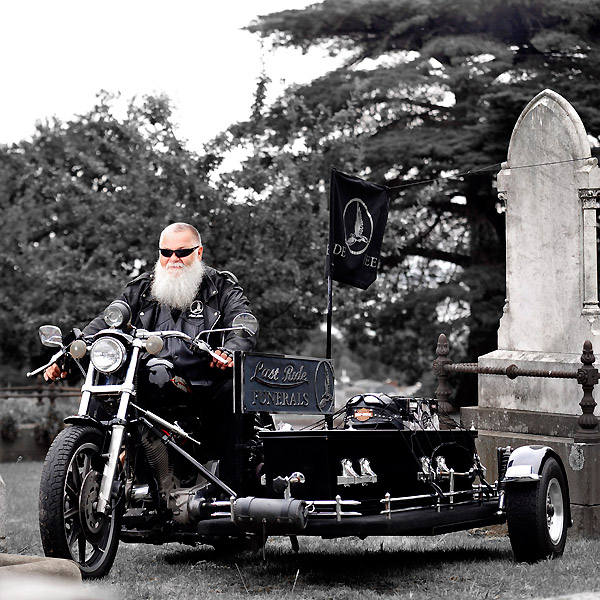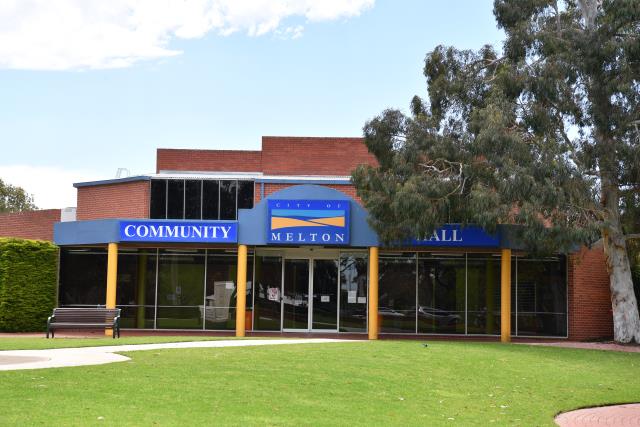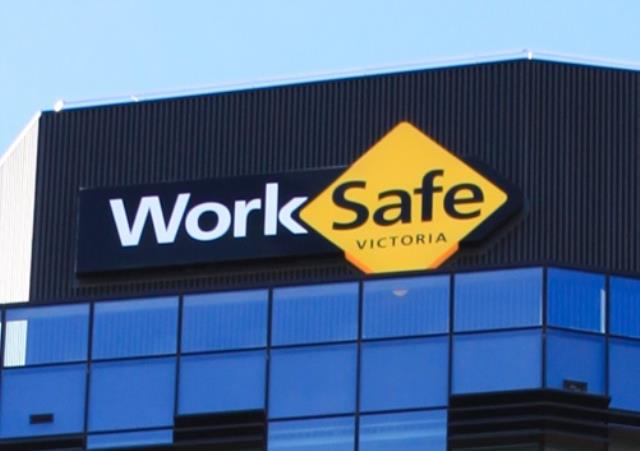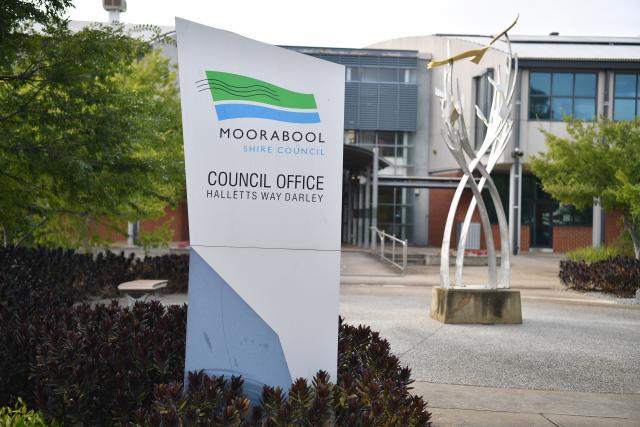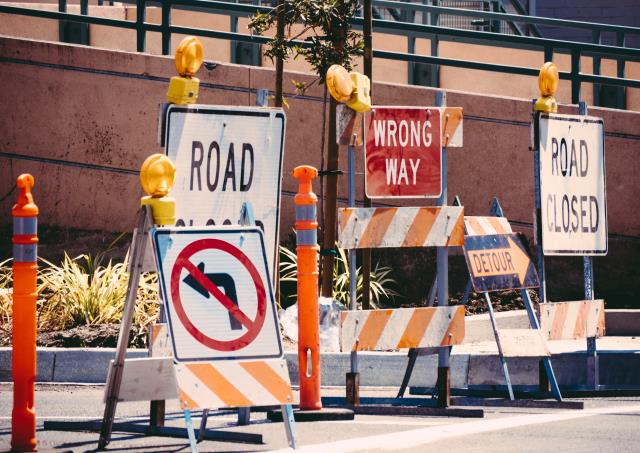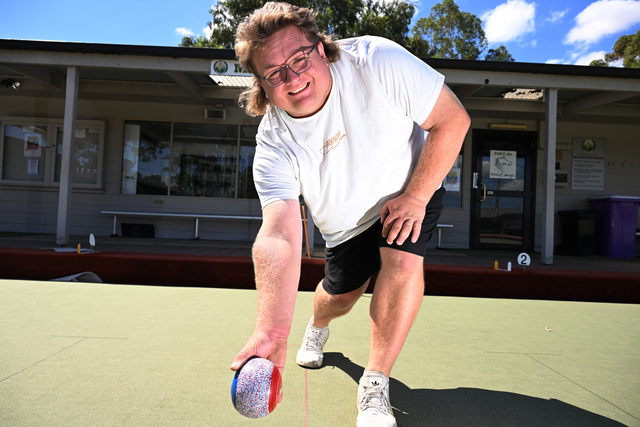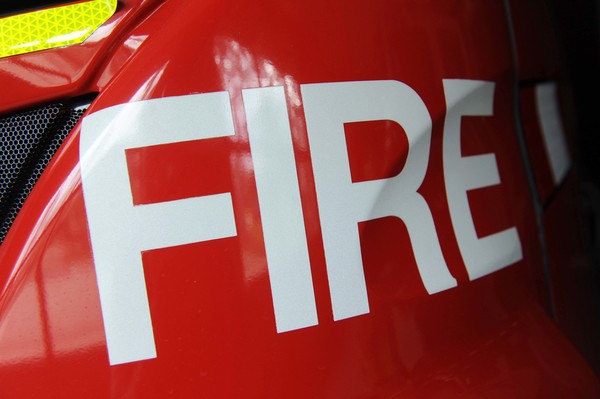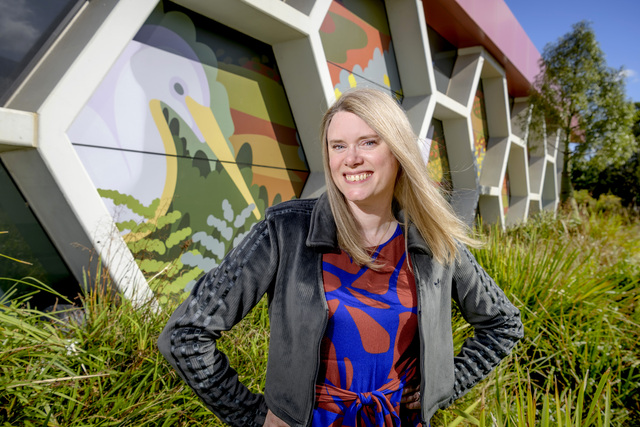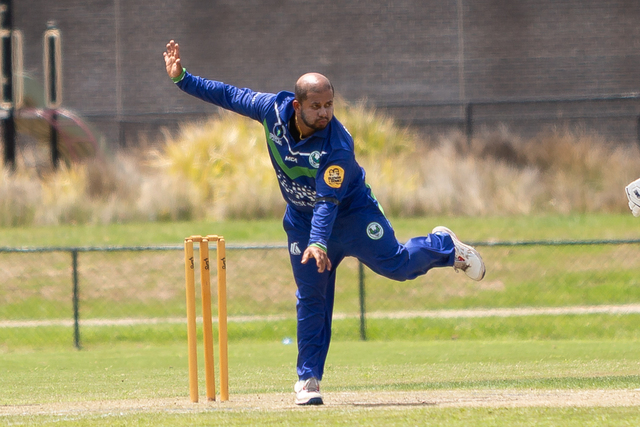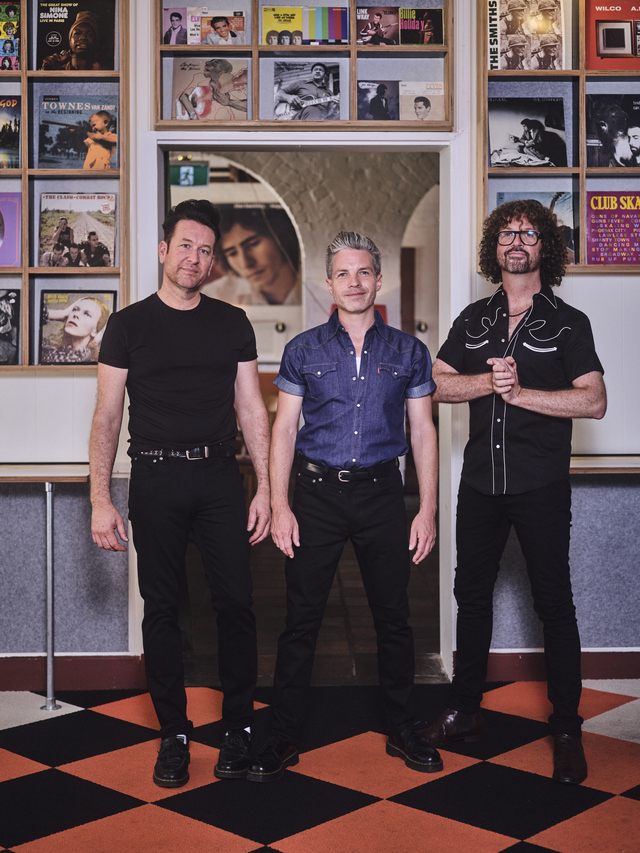Did we really think they’d go gently into the good night? It’s the baby boomers’ party and they will die how they want to. Sarah Harris reports.
You can’t play the Essendon theme song on the bagpipes at a funeral,’’ Ross Bates says. ‘‘The Collingwood song is fine.”
It’s not just a question of good taste. “Because the bagpipe only has nine notes we are limited in what we can play. Not all tunes translate to the bagpipe very well,” the professional piper from Sunbury explains.
By his own admission Bates, a former member of the Victoria Police Pipe Band, tends to be booked for more conventional funerals, but even here blow the winds of change.
“It used to be that we would only play slow airs and laments, but I have noticed over the last few years that people are more inclined to have a celebratory tone at the funeral, requesting some of the more upbeat marches.
“Amazing Grace and Going Home are still the most popular, but I have also been asked to play football songs, You’re The Voice, It’s a Long Way to the Top, Mull of Kintyre.”
“That is fine with me — it is their day.”
During the past 30 years there has been a profound change in Australia’s emotional culture and the way we deal with death and bereavement. The stoic silence, numbing liturgy and heavy black curtains of mourning have been pushed aside in favour of increasingly personalised “celebrations of life”.
The development of secular funeral ceremonies might be the lasting legacy of the baby boomers’ culture of choice, as hot pink coffins and Elvis impersonators find their way to the not-so-grave side of the funeral industry.
Kerry Walton, who has been offering his Last Ride Harley hearse service for the past 10 years, has learned never to make assumptions about who he might have on board.
“It was meant to be for hard-core bikies, but it didn’t work out that way. I do get a lot of business from the patch clubs, but surprisingly I have also done a heap of little old ladies plus children and people who have never even been on a bike.
“I did one for an elderly lady down in Rosebud who insisted before she died she didn’t want to miss her wake. So they put the coffin on a table and partied around her until it was time for the Harley to take her away.
“Each funeral is different. I have even been to ones where they applaud eulogies. But I love what I do. It’s a very honourable thing – the very last thing you can ever do for someone is give them a good send-off.”
Increasingly the farewell service is conducted by a funeral celebrant like Bacchus Marsh’s Dudley Raine rather than an ordained minister of religion.
Raine, a former international airline flight attendant, trained as a civil celebrant at Sally Cant’s Celebrants Training College.
“Back when I started training in 2003 civil celebrants would have been lucky to be doing 10 per cent of funerals,’’ Cant says. ‘‘Now – in some areas at least – we are probably getting closer to 70 per cent.”
Without the set one-fits-all script of a prayerbook and the set stage of a church, the funeral celebrant must be prepared for anything.
“I did one recently for a leading softball umpire where the whole service was run around a softball game and I had to learn the language to call the play,” Cant reveals.
“There was another a couple of weeks back on a golf course for a lady who died of an aneurysm on the ninth hole. She literally spent her life there.”
Even the headstones are starting to change shape the better to reflect the individual as Malcolm Vercoe of Macedon Ranges Memorials reveals.
The stark gray granite bed-ends and slabs are now punctuated by pebble ponds and coloured stones incorporating sculptured elements like the mortar and pestle selected by one client before her death.
Of course many are forgoing the monument altogether, with cremations now outnumbering burials. But with the increasing emphasis on the environment, cremation is hardly the greenest option with greenhouse gases emissions of 160kg of CO2 equivalent per person.
While the demand for green funerals is increasing, there are still some things the broader Australian community is not ready to countenance, Phillip Aspinall believes, like upright burials.
“We are still very choosy what we will and won’t talk about when it comes to death,” he says.
Nonetheless Aspinall — who with wife Bronwyn and daughter Clare runs Candlepines Undertakers of Distinction — agrees the Australian funeral industry has changed dramatically, reflecting in many ways the baby boomers’ trajectory.
“You have a much more educated consumer and they want to run the show, whereas before it was, ‘You are the undertaker, we will do what you say’. It is very, very proactive now – the family part.
“We are still are very much involved in the church services, but more and more because we are our own celebrants we are getting involved in the designer funerals.
“We had a funeral recently where everybody had to wear pink, including us, so we went out and bought pink ties and Bronwyn wore a pink blouse. We had another where to celebrate a man’s love of his vegetable garden we helped organise a casket arrangement with carrots, cauliflowers and potatoes.”
Michael Crawford of funeral directors Charles Crawford and Sons agrees it is questionable whether the “celebration of life” isn’t itself a bit of a denial of death.
“Funerals have come a long way, but the ancient art of dying is never going to change,” he says.
“You can lighten the moment, but you know that at some point of time that coffin is going to go and that is the cruncher in the whole process – it is the physical separation between the living and the body.
“The baby boomers have kicked this off. They are the ones who want a party. The next generation will take it further and as we go down the track it will be different again.
“We call it a celebration of a person’s life now, but I think it is going to be a lot more out there in years to come.
“My hunch is the living funeral is the next thing, where people say I am here and I am going to enjoy this day and when I die it is just the bare formalities.
“Then venues will change, and rather than the funeral director’s chapel it will be in a reception centre like a wedding, where the guest of honour says this is my time, this is my day.”

